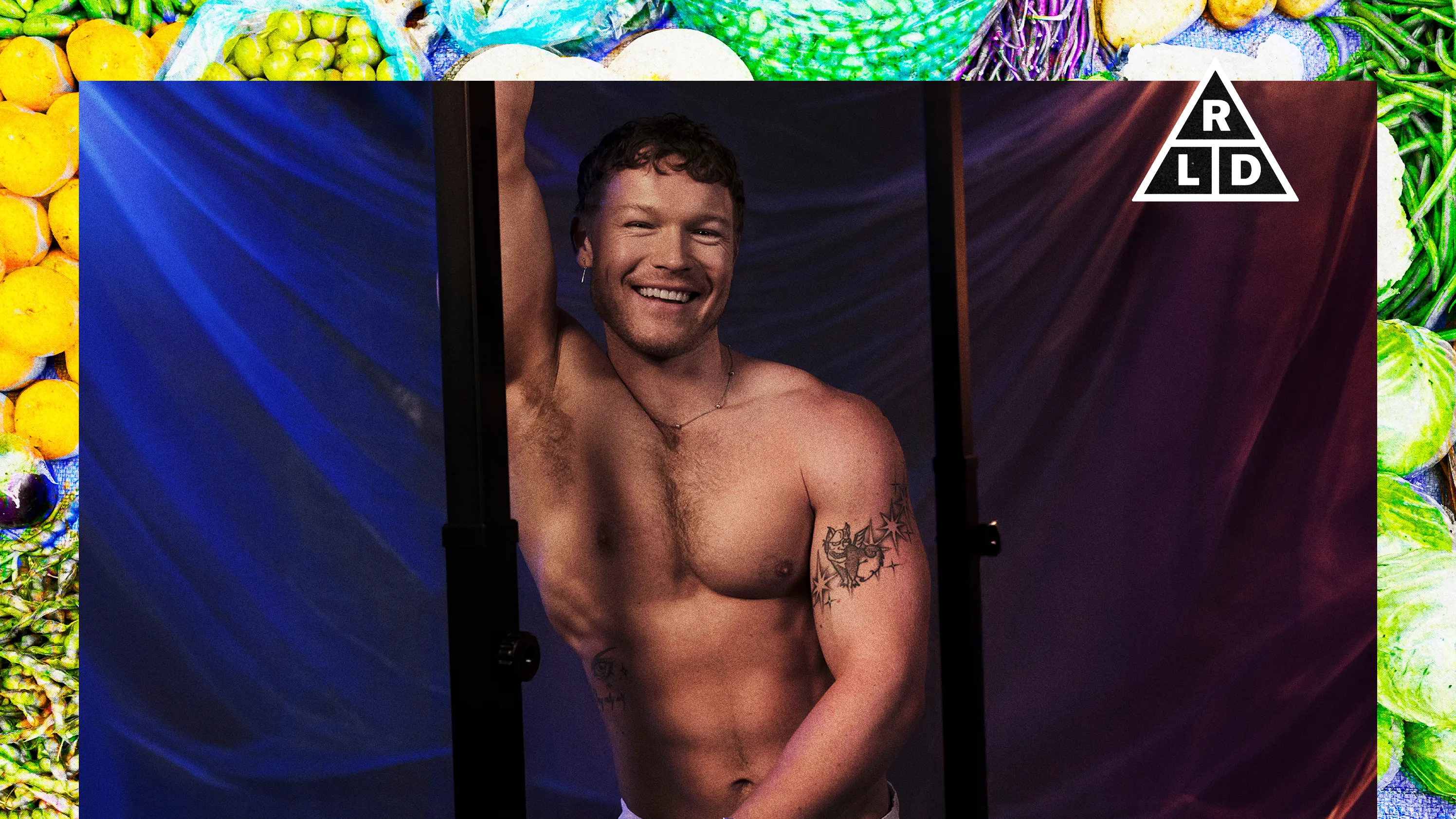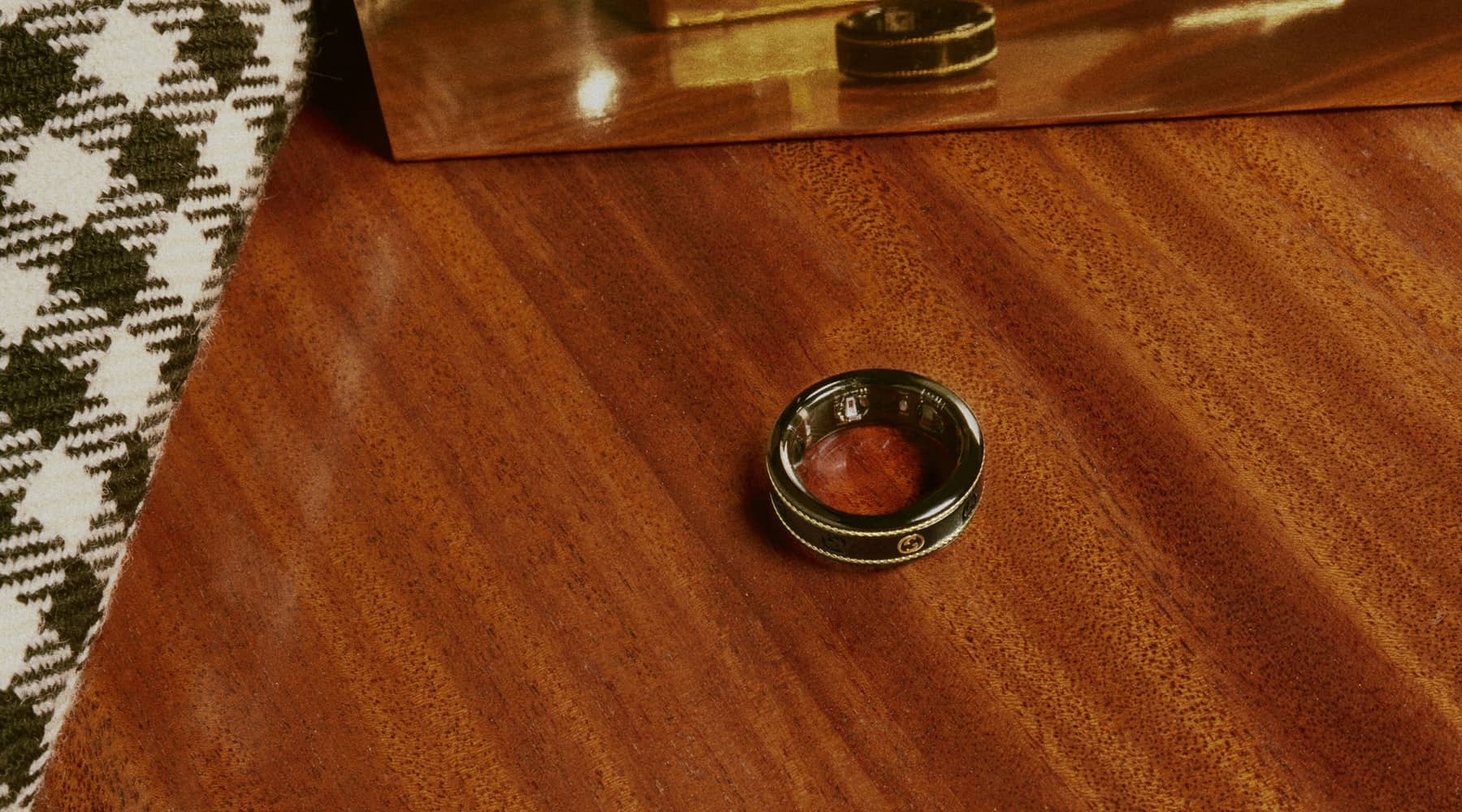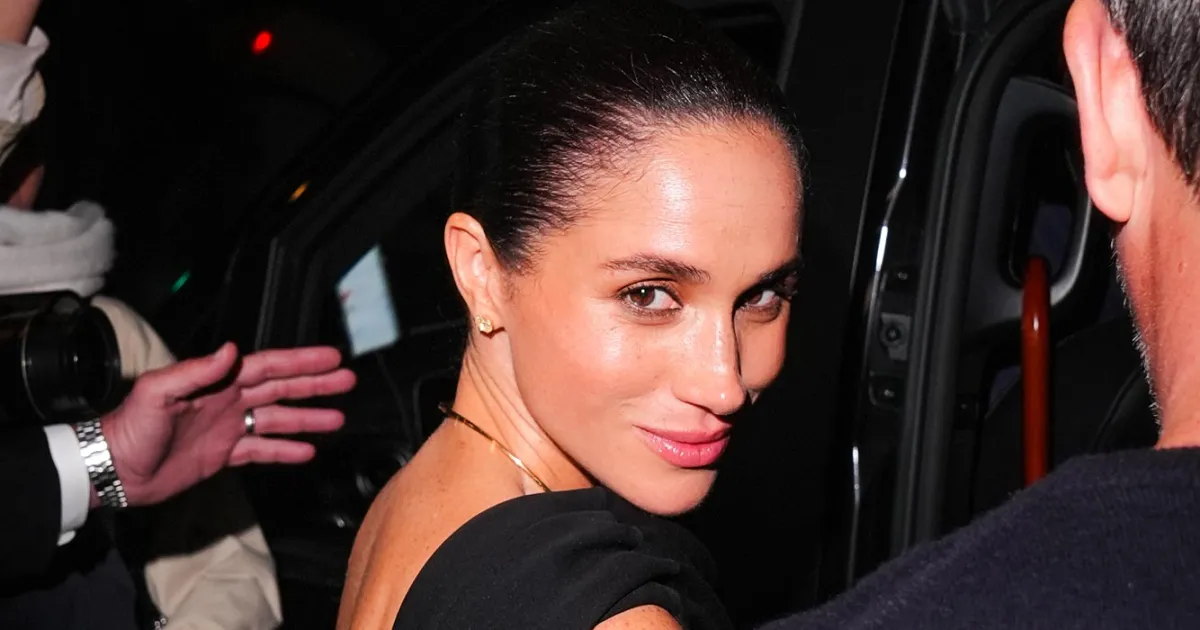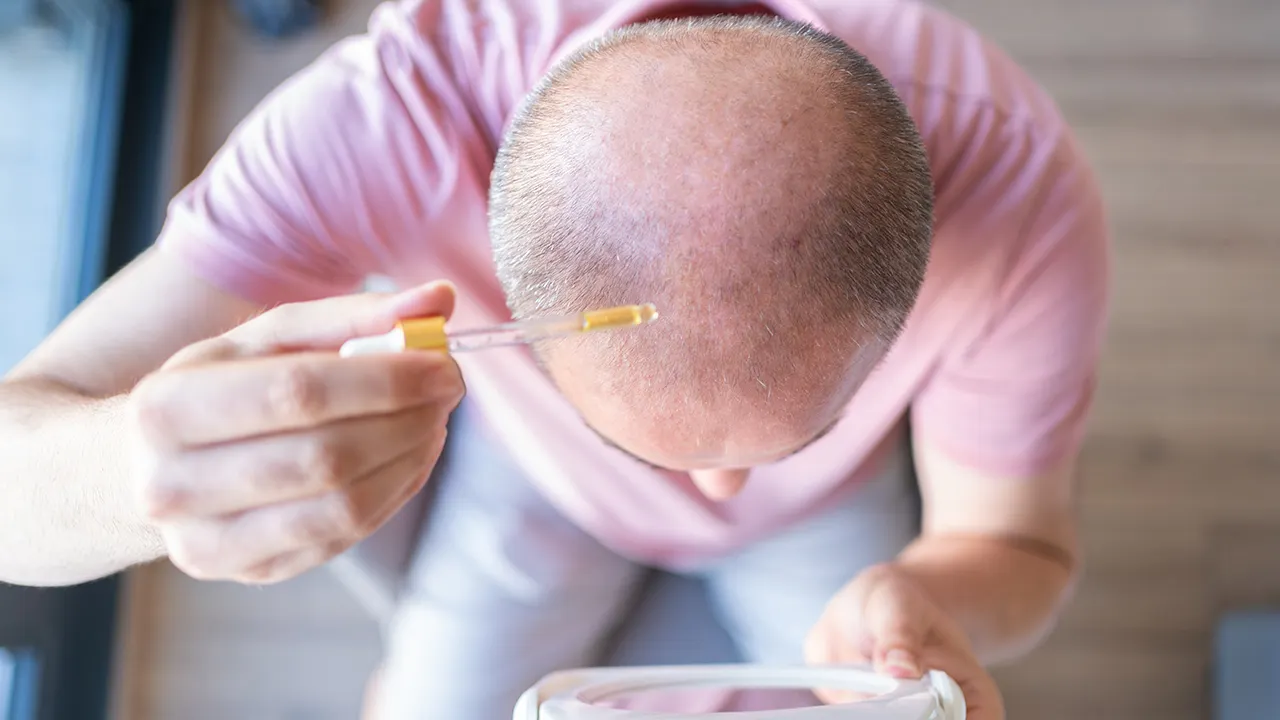Copyright gq

When the comedy-drama series Boots hit Netflix in October, many people got their first look at Angus O’Brien, the 29-year-old actor with the shaved head and impressive physique. What viewers maybe didn’t know is that, rather than gaining muscle by adding intense workouts or heavy protein shakes to his daily routine, O’Brien started to see results after eliminating things. Mainly: drugs and alcohol. The positive mental and physical effects followed shortly thereafter, and now O’Brien’s guiding mantra is to find whatever works for you. In Boots, O’Brien plays Thaddeus Hicks, a young Marine in basic training with a sharp David Bowie impression and an innovative mind. Despite the show being set in the ’90s, O’Brien says he didn’t go full method (meaning, he kept his smartphone on him) or feel the need to train like an actual Marine. While his approach to health and wellness can be simplistic, that doesn’t mean he’s flying by the seat of his pants. O’Brien is a seasoned workout professional, and he prides himself on his gym acumen. He also likes to stick to what works at the breakfast table, where he’s developed a ritual he both enjoys and gets plenty of nutrition from. When breaking down his fitness-oriented lifestyle, O’Brien shared some details on the best time to hit the weights, the reason for all of his shirtless Instagram pics, and how he got his legendary backside. GQ: Can you tell me how you got jacked? Angus O’Brien: Yeah, sure. I’ve been working out for a long time, but I think I started to really get results after I got sober. I very much needed to get sober. The weight came on pretty quickly with that, because I had always been really good with the gym. I was 20 pounds lighter before I got sober. I used to be a personal trainer, I know how to progressively overload and track my stuff. So, I’ve always been pretty good about that side of it. It was just once I was sleeping and eating properly, the weight started packing on pretty quickly, and I think [I’m] like 20 pounds up in three years or something like that. I would say just the consistency of high-intensity weightlifting really is the simple answer. Even when you were partying, you were pretty diligent about the gym, and then when you cut the partying out, you just started seeing results? Exactly. It was always something that was built into my routine, but I just think once I actually started having the fuel to make a physical change, it started translating pretty quickly. My workouts were obviously so much better and all that good stuff too. For Boots, did you have to get specifically military jacked? Did they have notes about what your body needed to look like? They didn’t really tell us one way or another. I think they sort of knew that they were casting a group of guys that were pretty on top of it in terms of their gym routine and stuff. I think everyone just kind of took it on their own to do what they thought needed to be done. Compared to some of the rest of the guys, I’m pretty lax when it comes to my diet and supplements. I take creatine, and Huel is the brand of protein powder that I do. That, and then my CBD gummies at night. It all boils down to keeping it pretty simple. I know people who are natural, who are not natural. I’ve always been natural, and a part of that is just because my brain doesn’t work in the way of like…if I have to do extensive research on something, I’ll go crazy. I find a more relaxed approach is actually more helpful for me to maintain what I want to maintain. Got it. So they weren’t like, “We need to get your biceps bigger, we need you to have 12-pack abs?” No. I mean, I would love to be a part of a show or a movie where they’re like, “You have to get jacked,” and I’m like, “I got you.” But no, it was just, come as you are. Are you the type of guy that has specific rules for yourself? I refuse to do this, or, I will never eat that? My brain does not respond well to being like, “I can’t do this,” or, “This is not allowed,” because I know myself. I’ll start to go crazy if I make things super rigid like that. I’m lucky because I tend to prefer—instead of something sweet—I would almost just rather have a whole another meal. I just love eating, and I love eating savory things. Over the years I’ve gotten good at listening to my body’s cravings. Generally, I am lucky that I tend to just crave high-protein meals, carbs, good fat, stuff like that. What do those meals typically look like? Are you cooking them yourself? Yeah, a little bit. I just love breakfast food. I’m looking forward to my breakfast and my coffee the night before. When I go to bed, I’m like, “I cannot wait to have my coffee and breakfast.” I always start the day with a huge breakfast. I have the same breakfast every day, which is whole-wheat sourdough avocado toast. I’ll do four eggs with some egg whites poured into that, and then some turkey bacon as well. I usually lift right afterwards. I just feel like I need that to start my day. Then I usually will just graze throughout the day, but I’ll supplement that with a couple of those meal plan services; I pick the high-protein option. That way I just know, regardless of what else I’m eating throughout the day, that I’m on the guardrails of having high-protein, high-fiber meals that are checking those boxes as well. So you have the foundation in place, and then you can be like, “Oh, if I have ice cream I’ll be fine.” Yeah, exactly. I know I’m getting what I need, and anything else is just for my own pleasure. Besides the food, are there other parts of a morning routine that you try to stick to? After I sit and have my breakfast, I usually will try to go to the gym pretty soon after that. I used to be a go-to-the-gym-whenever type of guy, but my boyfriend got me onto the morning gym lifestyle. Once I got over that initial hump, it is so much better. Like I said, one thing I’m proud of is I feel like I really know what I’m doing in the gym, and I push myself really hard. It feels good to start the day knowing, damn, I just pushed myself so fucking hard. Isn’t it annoying, though, that all the stuff they tell you you’re supposed to do actually works? Getting a task done early in the day is always the move, and I always look for an excuse to not do it. I know, and I used to be so much more of a night owl. Again, my boyfriend wakes up at 5 a.m. every day. I kept being like, well, I love being cozy late at night, watching my show, whatever. He was like, “But you can do all that stuff. You can wake up and have all that cozy time.” As soon as he said that, I was like, “Wait. That’s so true. It can be just in the morning instead.” You can watch three episodes in the morning, which is such a huge revelation for me. But I will say too, about supplements and stuff, I started taking one of those CBD melatonin gummy things before bed, and I feel like my sleep has been really good since getting on that. I’m of the mindset where it’s like...do what works for you. I’m that way with fitness and with what I eat. I really try to not be so dogmatic about any of it. I just find I settle into a routine more that way. I will trick myself with the placebo effect. I’ll just tell myself something’s working, and then I feel like it’s working. Do you think, generally speaking, that you’re getting enough sleep? I hate to say it, but I really do feel like I’m getting enough sleep. It’s something that is, I would say, so high on my list of priorities. It’s so clear to me if I’ve had good sleep versus [if I haven’t] how the rest of that day plays out, just in terms of my mood. I really do try to get seven, eight hours if left to my own devices. I also value, even if it’s not sleeping, if you’re able to just rest and chill. To me, that’s also rejuvenating. But yeah, I need that seven, eight hours of sleep to feel like my best self, for sure. Now that the show has come out and you have more attention on you, I’m wondering about the mental health aspect of that. Are you someone who will read the Instagram comments, for example, or do you try to stay away from all that? I generally try to stay away from it. I don’t really read the reviews. I feel like the good thing about Instagram is that as far as social media platforms go, if people are saying something, they’re usually going to say something nice. It’s not like Twitter where it can get a little bit more polarizing. So, what I do see is generally pretty positive. But honestly, mental health-wise, my day-to-day is so completely unchanged. Nothing has really changed for me, and I like it that way. When I feel the pull of the rabbit hole, instead, I just text someone who’s also experiencing the same thing, and be like, “Hey, what’s up? How’s it going?” Just talk to a person, basically. Who would have thought that that’s a good idea? It’s genius. Do you have people in the industry that you’ve gone to for guidance? Miles [Heizer, star of Boots]. It’s so rare to be working with someone who is your best friend that transcends that work-friend sort of relationship. We met doing this show, which we started two and a half years ago. I think, having someone when you’re really stressed about something to just be able to talk to about it and know that they’re going to understand. Of course, whenever I’m stressed in a situation with work, I’m also so grateful and lucky to be working and to have that experience. There’s a part of me that feels guilty for even being stressed sometimes. But it’s nice to just be able to text someone, and then be like, “You’re allowed to be stressed. You’re allowed to be bummed out by certain things, even when something great is going on in your life.” Miles is perfect for that. He’s a great listener and he has a ton of experience also in the industry for someone who’s my same age. He checks all those boxes in terms of the person I can lean on. How old are you? I think the 20s are stressful no matter what. There’s going to be stuff that just sucks, and that’s inevitable. You have to kind of bake that into the experience. It’s almost relieving when you finally accept that that’s just how certain things are. No situation is going to be completely free of challenges. And the sooner you can embrace that, I think, the smoother things start to go. You had a post from February where you said you were 22 pounds up since ending your drug addict era. If you’re comfortable sharing, what did the drug addict era look like for you? I will just say I was a drug addict in the classic sense. My drug of choice was ketamine, which I think, in the post-pandemic era, has become so ubiquitous and almost as commonplace as having a beer in certain spaces, in certain scenes. I live in Brooklyn. I know what you mean. Exactly. I’m currently in Bed-Stuy, so you understand how my problems snowballed in the way that it did. But yeah, after COVID, my relationship to where I do drugs changed. It became normal to do drugs in my own space, and then the habit really snowballed from there. I also come from a family of addicts. They’re all sober now, so it’s chill. But when my addiction really finally manifested, I remember having this feeling of like, “Fuck, it got me.” That being said, I was very fortunate. My older brother and my mom—it took a while for me to reach out for help, but I took comfort in knowing that as soon as I was able to make that decision—I was so lucky to have a family that completely understood what I was experiencing. So, I just called my brother. I was like, “I have a drug problem. I need help.” He was like, “Okay, I’m going to get you a plane ticket back out to LA.” That’s where I grew up, in Los Angeles. I stayed with him for a month, got sober, and my life just got so much better, in an almost comic way. My life got so much better so fast, which I feel like really is a testament to how severe of a drug addict I was. But yeah, I’ve just been really riding the wonderful roller coaster since that moment. Everything’s been…I mean, life has had its challenges, but nothing compared to how tough things were when I was using. I just hit three years [of sobriety] on October 12. Were you a high school partier? I was a drinker and weed smoker. But again, all my drug and alcohol use was pretty normal until post-COVID, I would say. Having come from a family of addicts, I felt like I was always pretty self-aware whenever I was drinking and smoking, just to make sure it felt like I wasn’t abusing anything. It was fairly standard in that department just until COVID, and things really changed after that. Going back to when we were talking about sleep, I feel like my sleep is very attached to my feelings around sobriety, where I finally feel normal in my head for the first time in so long. When I feel like I’m getting good sleep, that’s what I associate with the feeling of being at peace. That’s why I think it’s so important to me that I always get seven to eight hours. When I got sober, I had been doing drugs for, I think it must’ve been two years at that point. I remember when I went to LA to get sober, I actually had a full night of sleep for the first time in what felt like years. I was like, “Oh my God, this is the best thing ever.” Your Instagram is very heavy on shirtless pics. I am curious to know if you’ve always had the confidence for that? Or if this is kind of a newfound thing where you’re more comfortable in your body? It’s weird. It’s that double-edged sword thing on social media. We’re posting the pictures where we think we look the best, right? So I’ve always tried to have as healthy of a relationship with that as possible. Weirdly enough, with my work, I almost feel less insecure or I scrutinize myself less when I’m watching myself work, versus just pictures of me that are taken casually or whatever. Again, not to bring it back to sobriety, but I feel like in the three years that I’ve been sober, I just feel at peace with myself. When I was younger, I was always trying to prove something, come off a certain way, look a certain way. Now, I’m kind of just happy, chilling, and feeling the confidence that I have now. It does feel like it’s coming from a little bit of a different place now. I guess I’m doing it less for the hope that I’ll be fed from the outside. I just feel comfortable and confident and happy with myself, and it feels fun to share that sometimes. I definitely used to be caught up in the unhealthy relationship to that validation, and now I feel sort of freed from those shackles. Are you interested in the manosphere at all? Do you ever check in with them? No. I’m not interested, to be honest. It’s so stark, and just such a separate way of being than me. Yeah, not really an interest for me. It really is so crazy. I mean, there’s all the biohacking stuff, which I feel like, conceptually, some of that stuff is interesting. But I just feel like so often it’s tied to a kind of toxic masculine way of being. I think there’s a way of approaching health and fitness in a way that can be so separate from that. Even when I’m on Instagram, I love following different accounts, especially fitness accounts. I’ll be following someone for their great gym content, and then all of a sudden they’ll post something where I’m just like, “Oh my God, get me the hell out of here.” Now I have to vet all these gym bro accounts that I’m following because I’m afraid they’re going to wake up one day and just post something really insane. My last question for you is in reference to something that Mel Ottenberg said in an interview. He said you have one of the best asses of this era. How did you sculpt said ass? Is it God-given or is it the gym? It’s definitely a combination of the two. I come from a long line of O’Brien booties, for sure. I will say what was always a source of discomfort and anxiety to me when I was younger—because when you’re young and you have a big ass, you’re just like, “These pants don’t fit me. Everything feels weird. It feels so uncomfortable”—then when you finally grow up, you get to a point where you can appreciate it. It’s a good thing to have a big butt these days. I was a young adult when I was finally like, “No, I like having a big butt!” Then I was like, “OK, let me hit legs twice a week in the gym.” From that point, [I’ve been] building it out from there—RDLs, hip thrusts, squats, all that good stuff. In Real-Life Diet, athletes, celebrities, and other high performers talk about their diet, exercise routines, and pursuit of wellness. Keep in mind that what works for them might not necessarily be healthy for you.



